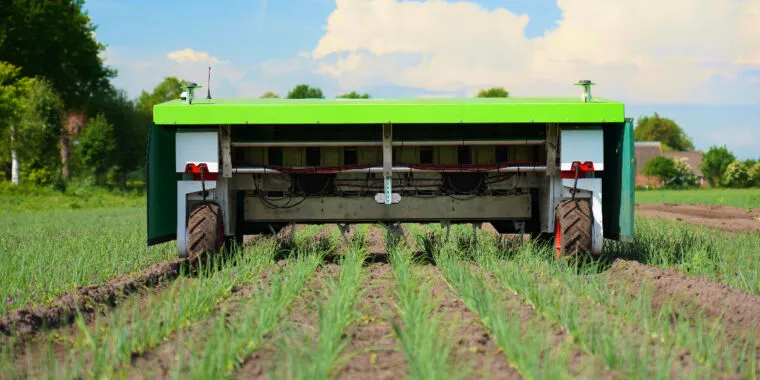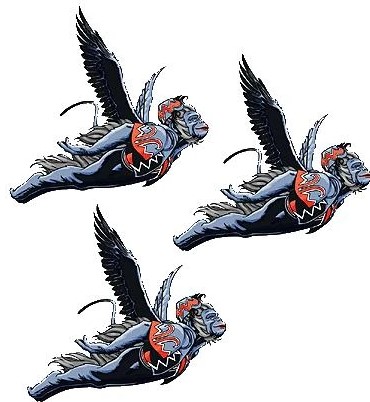This looks like a truly good use for AI.
I hope they don’t scale it up to pluck the ingredients for soylent green.
Just give it a decade or two.
I wonder if consent makes any difference there. Would that be vegan?
Wonder how much WaaS (Weeding as a Service) is going to cost.
I hope farmers refuse to buy any weeding machine that they don’t fully own (right to repair, etc.)
Looks cool and probably really useful, but I don’t know how much sustainable future relies on Monocultures, because of loose of biodiversity, soil etc you know the drill.
Removed by mod
Maybe it could deal with multiple crops grown together eventually.
for food forests, you just need to add a tool-switching machine similar to how some CNC mills can automatically switch tools.
I’ve seen lasers do the same job more effectively. An attachment for a combine.
Oh, it pushed a rabbit back into earth unintentionally.
This is the best summary I could come up with:
So a Swedish company named Ekobot AB has introduced a wheeled robot that can autonomously recognize and pluck weeds from the ground rapidly using metal fingers.
It’s tuned for weeding fields full of onions, beetroots, carrots, or similar vegetables, and it can cover about 10 hectares (about 24.7 acres) in a day.
It navigates using GPS RTK and contains safety sensors and vision systems to prevent it from unintentionally bumping into objects or people.
To pinpoint plants it needs to pluck, the Ekobot uses an AI-powered machine vision system trained to identify weeds as it rolls above the farm field.
Two years ago, Ekobot announced a collaboration with Swedish telecom company Telia that led to the integration of 5G mobile technology into the robot, which lets it communicate remotely with a central server to share collected learning data from anywhere in a farm field.
When coupled with research on lasers that zap pests in flight, AI may help pave the way for a more sustainable and environmentally friendly farming system if widely adopted.
The original article contains 487 words, the summary contains 173 words. Saved 64%. I’m a bot and I’m open source!
Operating this at scale will be a problem. Yes, you can make one this big, but how durable is it when you build one at industrial scale? If you need a million little tiny fingers working for days at a time, what’s the mean time to failure and how hard are they to replace?
Removed by mod
Right, but how long will it last before it breaks? If it can only do an acre of crops before part of the mechanism breaks it won’t get adopted by farmers.
Removed by mod
That’s why I’m asking, there’s no details in the article about its expected lifetime and that’s important for adoption
Removed by mod
I agree that it’s a good thing, but I don’t think you understand the point I’m making, so I’m ending it here.




